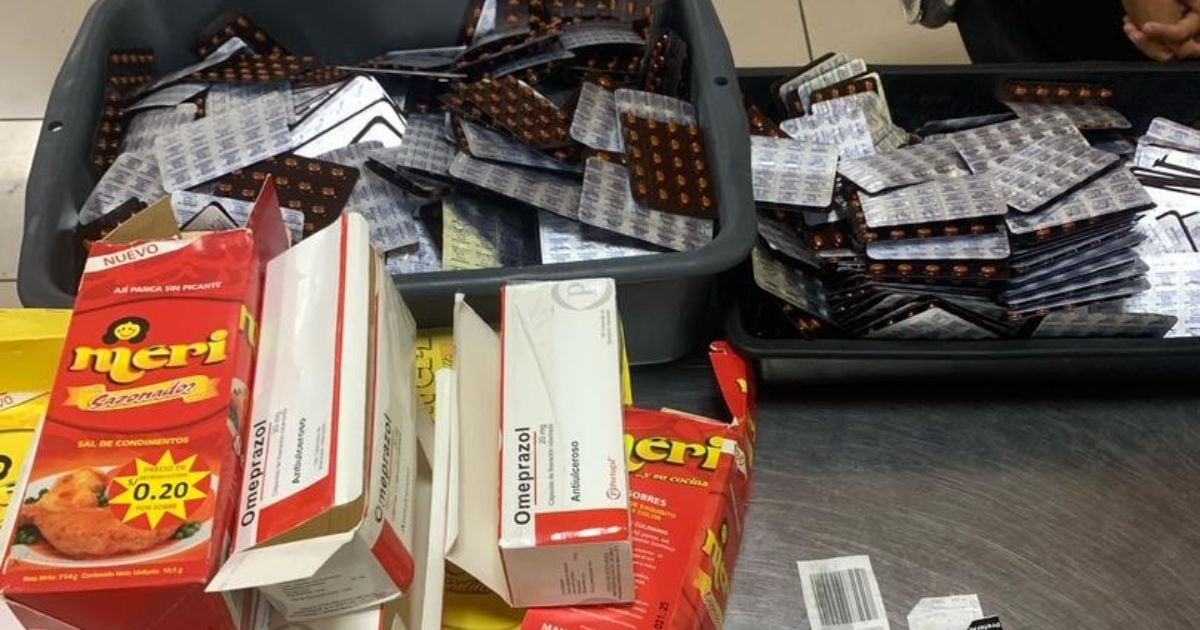The General Customs of the Republic of Cuba announced on Monday the seizure of over 890 blister packs of a controlled medication that were being smuggled into the country concealed within boxes of food products. This discovery occurred at Havana's José Martí International Airport during a national exercise aimed at preventing and combating crime, as shared on social media platform X by Customs' First Deputy Chief, Wiliam Pérez González.
"Customs in Cuba, as part of the national crime prevention and control exercise, detected more than 890 blister packs of a medication regulated by the Ministry of Health, which were hidden in boxes of various seasonings," the official stated.
The announcement did not specify the type of medication seized or whether any arrests were made in connection to the incident, although it highlighted the illegal nature of the operation due to the substances being regulated under the guidelines of the Cuban Ministry of Public Health (MINSAP).
Customs authorities have heightened airport inspections as part of a crackdown on the trafficking of drugs, psychotropics, and regulated medications. Despite the regime's claims of tighter customs control against drug and controlled medication trafficking, there is clear evidence that such activities are increasing at Cuban borders.
Back in March, the General Customs of the Republic of Cuba ramped up its efforts against drug and controlled medication trafficking, successfully identifying and thwarting several smuggling attempts at the nation's airports. Authorities reported the use of "blind mules," individuals unknowingly carrying drugs in their luggage, as part of an organized network operating on international flights. This method demonstrates the growing sophistication of trafficking operations directed at Cuba.
Additionally, another thwarted attempt involved a passenger attempting to leave the country with two packages of cocaine, intending to board an international flight. The swift action by customs agents prevented the drug from being exported, underscoring the vigilance over outbound as well as inbound routes.
Days later, officials uncovered drugs hidden in disposable diapers from the United States. This unusual find highlights the persistent ingenuity of smugglers trying to bypass border controls and exploit existing customs leniencies for personal use items.
Finally, last Saturday, a trial was held for a Cuban citizen accused of transporting drugs within the country. This judicial process was emphasized by authorities as part of their crackdown on such crimes, within a broader strategy that combines border surveillance with exemplary penalties.
Frequently Asked Questions about Drug Trafficking in Cuba
What substances are considered controlled medications in Cuba?
Controlled medications in Cuba are substances regulated by the Ministry of Public Health, which require special permits for importation and use due to their potential for abuse or illegal distribution.
How are Cuban customs combating drug trafficking?
Cuban customs have intensified inspections at airports and are employing strategies like undercover operations and monitoring to prevent drug trafficking, in addition to legal proceedings against those caught smuggling.
What are "blind mules" in the context of smuggling?
"Blind mules" refer to individuals who unknowingly transport drugs in their luggage, often used by organized crime networks to smuggle substances without the carrier's awareness.
